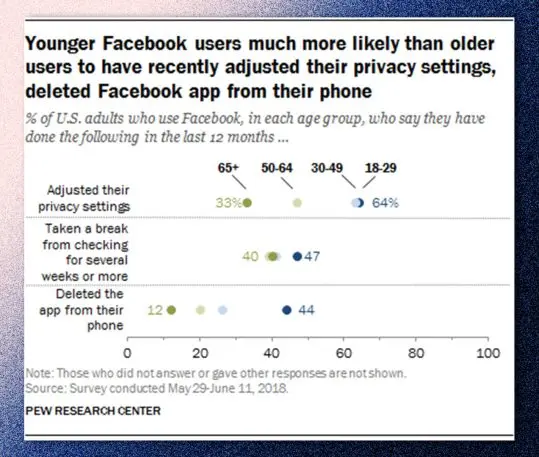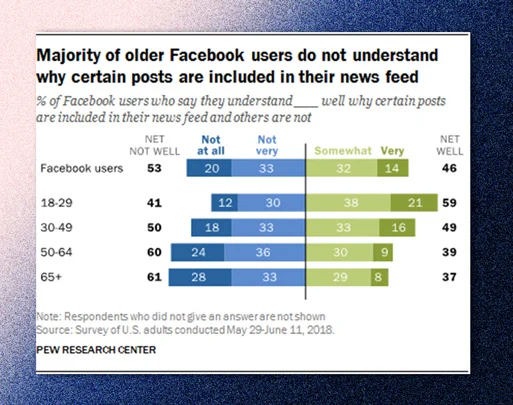After a year of revelations about how Cambridge Analytica collected data on tens of millions of users and Russia influenced public sentiment with alt-right propaganda on Facebook, the social network is in trouble.
According to two new studies from Pew Research that each polled 4,594 Facebook users, young people are the most likely users to abandon the social network. And at the same time, young people are actually the most likely group to use Facebook’s privacy settings and understand how the company’s algorithmic news feed works. In other words, while this connection is correlational rather than causal, the demographic who understands Facebook the best is opting to ditch the service most often. At the same time, the older population sticking loyally with Facebook is, unfortunately, the same age as people who tend to know less about how it works.
In study one, 44% of young people (age 18 to 29) said they deleted the Facebook app from their phones in the last year. That’s almost four times the rate that users 65 and older deleted Facebook. “Similarly, older users are much less likely to say they have adjusted their Facebook privacy settings in the past 12 months,” Pew explains. “Only a third of Facebook users 65 and older have done this, compared with 64% of younger users.”


A whopping 70% of people who had tried to influence their feed had made changes to their ad and privacy settings. Tellingly, Pew also notes that of about 10% of people who downloaded their data from Facebook, about half deleted the app entirely, and almost 80% changed their privacy settings. It seems that once people understand what kinds of data Facebook tracks, they seem to change their behavior.
If we know that young people are the most likely to understand how Facebook’s algorithms may work, and also the most likely to delete the service, what does that mean for the company’s future?
Facebook, for its part, has been edging toward transparency with some new tools that allow people to change privacy settings and delete their data. But such tools may not be convincing people who are concerned about the platform’s practices to stay. And the older people who stick with the platform may need more help understanding how its News Feed and other features really work. As the most lucrative users–those advertiser-coveted young people–are most likely to flee first, the only way to fix Facebook may be to actually fix Facebook.
Recognize your brand’s excellence by applying to this year’s Brands That Matter Awards before the early-rate deadline, May 3.
